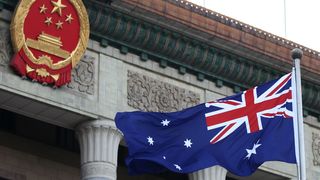While the Australian military has seen record levels of investment, not least through the advent of the AUKUS partnership, and against the backdrop of China's increasing military capabilities in the region, fewer Australians than in 2022 see conflict with China as likely.
The results from a new poll by the United States Studies Centre, explored in One year from the 2024 US presidential election: The stakes for Australia and the alliance, reveal that the number of Australians who see conflict with China in the next decade as very or somewhat likely decreased from 58 per cent in 2022 to 49 per cent in 2023. At the same time, the proportion who see it as very unlikely jumped from 25 per cent to 32 per cent.
Negative views of China in the region remain prevalent in Australia, the United States and Japan. Roughly half of respondents in all three countries still believe China is mostly harmful in Asia, with just 15 per cent of Japanese respondents, compared to 29 per cent of Australians and 23 per cent of Americans saying that China is either helpful or makes no difference in the region.
The results paint a picture of a fraught, though not necessarily unsalvageable relationship between China, and the United States and its allies. With US President Biden slated to meet Chinese President Xi Jinping later this month on the sidelines of the APEC Leaders' Meeting in San Francisco, it remains to be seen what steps both sides might take to ensure that strategic competition between the two superpowers does not spiral into deeper acrimony.
And, with the countdown on until the 2024 US presidential election, Australians will be watching to see what the future holds for their largest and most important ally.
This article was first published in the weekly newsletter 'The 46th'. Subscribe to The 46th here.






